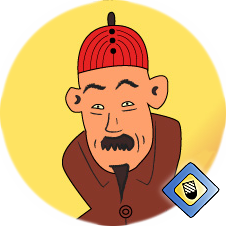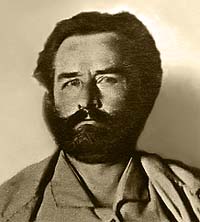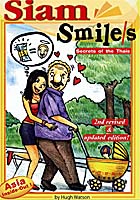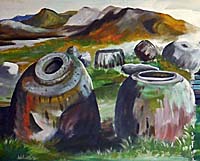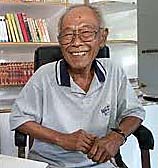by Eric Ambler
Do you know Eric Ambler? If you see an Ambler, then read it. Don't waste time! You have family? Let them wait. You have a job? Quit it. Other things to do? Forget it. An Ambler is more important. It's really good stuff!

Eric Ambler
The Night-Comers (1956) offers a deep view into post-colonial Indonesia. It's about an English engineer at the end of his contract in a fictive (Indonesian) state called Sunda (reminds much to Banda Aceh / north Sumatra). On his way to Jakarta he is going to take a plane in Selampang, Sunda's capital and comes on change into the center of a military coup.
Ambler is brilliant in describing the mentality and way of thinking of Indonesian people. Besides he shows up the manyfold problems a young state in the region had after the Japanese occupation and the bloody fight for independence from the Dutch colonial regime. Islam already shows up as a military crisis ideology, promising strength, power, discipline and a way out of the disaster of the people in a crisis shaken oriental country. The lack of resources, qualified specialists and a ridiculously overwhelming corruption is the reason for the very inefficiency of the state. The only efficient institution is the military. That's still so in contemporary Indonesia.
Above all 'The Night-Comers' is a thrilling polit novel always good for a surprising turn of the events. Eric Ambler was one of the greatest masters of polit thrillers. In his mastership he is comparable with the great master of crime novels, Raymond Chandler. Nowadays Ambler is undeserved widely forgotten.
1965, nine years after 'The Night-Comers' was published, Indonesia's President Soekarno was ousted by a military coup led by General Suharto, who killed between 500,000 to 2,000,000 million people (particularly leftists). His sanguinary regime lasted until 1998, when he was finally pushed out of power by a democratic movement and mass demonstrations.

"Thrillers (...) really say more about the way people think and governments behave than many of the conventional novels. (...) A hundred years from now, if they last, these books may offer some clues to what was going on in our world."
Eric Ambler in an interview with the New York Times, 1981

Read the excerpt by pointing here with your mouse...
"Sundanese officials are peculiarly difficult to deal with, especially if you are an English-speaking European. The first thing you have to realise is that, although they look very spruce and alert and although their shirt pockets glitter with rows of fancy ballpoint pens, they have only the haziest notions of their duties. The language problem is also important. All the forms you have to fill up are printed in English as well as Malay, because English is an official language and the officials are supposed to be bilingual. The trouble is that they will never admit that they are not. If you speak in Malay they feel bound to reply in English. Unfortunately, the few words they have soon run out, and although they may continue to look as if they understand what you have said, they are in fact hopelessly at sea. Their technique for dealing with the resulting impasse is to pretend that they have to consult a colleague, and then go away and forget about you. The form you have completed gets lost. Your only chance is to say and write everything very distinctly both in English and Malay, and to keep fingering your wallet as if you are getting ready to pay. You are, indeed, going to have to pay eventually; and not merely the legal fee for the service in question. When the formalities are almost completed, it will suddenly be discovered that you ought to have produced another 'clearance', and that without it you cannot have whatever it is you want.
A Kafka-like scene ensues. Nobody can tell you precisely what this mysterious clearance is or how you set about obtaining it. The shifty brown eyes peer at you. It is your move now. You ask what the fee for the clearance would be if one knew where to obtain it. A figure is named. You ask if, as a special favour, you may deposit this sum so that, when more is known about it, the clearance may be obtained for you. There is a shrug, then a grudging assent. The eyes watch sullenly as you count the money out. You agreed too quickly. He is wishing he had asked for more and wondering if it is too late. No, it is not. He made a mistake. He forgot the price of the Government stamp. You smile politely and pay that, too. There is no answering smile. Other brown eyes have observed the transaction and there will be a share-out when you have gone. To get out again into the open air is like emerging from a depression.
The granting of an exit visa to a resident European is a big operation. My first visit to the visa section of the police department headquarters lasted an hour. In that time I managed to secure the five different forms that had to be completed, and countersigned by various other authorities, before the formal application could be submitted. This was good going. I went next to the agents for the Hongkong and Shanghai Bank, cashed a cheque and had one of the forms countersigned. After I had deposited it, together with another form, at the Internal Revenue Department, I called in at the Indonesian Consulate and applied for a transit visa. By then it was time for lunch."
Out of the 'Night-Comers'
